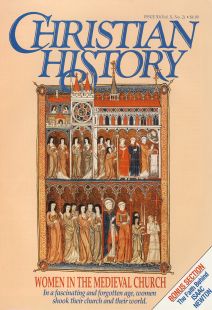Christian History Chronology: Significant Events in the Life of Isaac Newton
1642: Born December 25 in Woolsthorpe, north of London
1655: Attends Grantham Grammar School
1661: Enters Trinity College, Cambridge
1665: January—graduates Bachelor of Arts; August moves back home because of the plague
1666: Develops binomial theorem; invents the calculus; postulates a gravitational force holding the moon in its orbit; and proves that white light is a mixture of light of all colors
1667: Returns to Cambridge; elected fellow of Trinity College
1669: Elected Lucasian Professor of Mathematics
1672: Elected fellow of the Royal Society
1684: Edmund Halley’s visit leads to writing of the Principia
1687: Publication of Principia Mathematica
1689: Elected Member of Parliament
1693: Experiences mental breakdown
1696: Moves to London as Warden of the Mint
1700: Appointed Master of the Mint
1703: Elected president of the Royal Society
1704: Publication of Opticks
1705: Knighted by the Queen
1727: Dies March 20; buried in Westminster Abbey
By Charles E. Hummel
[Christian History originally published this article in Christian History Issue #30 in 1991]
Charles E. Hummel is author of The Galileo Connection and Genesis: God’s Creative Call (both InterVarsity).Next articles
Readers Respond to the 100 Events Issue
Which events should have been listed? Here’s what you said.
Kevin A. MillerThe Golden Age of Hymns: Did You Know?
Fascinating facts about the golden age of hymns.
James TownsendThe Golden Age of Hymns: From the Editor — Silent String
Imagine a church without music.
Kevin A. MillerThe Forgotten Wesley
Often overshadowed by his famous older brother, Charles Wesley has emerged as perhaps “the greatest hymnwriter of all ages.”
James TownsendSupport us
Christian History Institute (CHI) is a non-profit Pennsylvania corporation founded in 1982. Your donations support the continuation of this ministry
Donate



